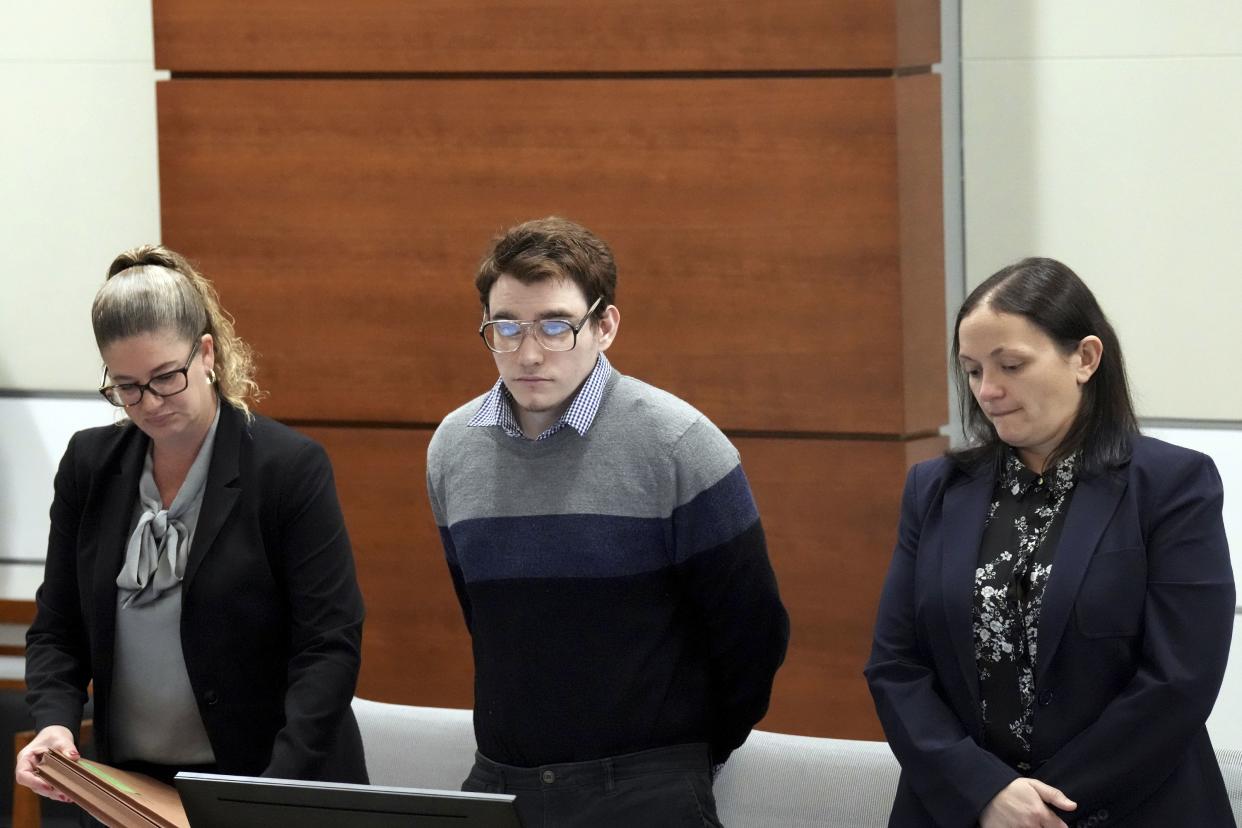Parkland shooter Nikolas Cruz had fetal alcohol syndrome: defense
Admitted Parkland school shooter Nikolas Cruz was afflicted with fetal alcohol syndrome and never stood a chance, his defense team said Monday during his penalty trial.
The now 23-year-old man who shot up Marjory Stoneman High School in Parkland, Fla., on Valentine’s Day 2018 was doomed from the day he was conceived, as his birth mother used cocaine and drank, his lawyers said.
As a result, Cruz had many elements of Fetal Alcohol Spectrum Disorder (FASD), Seattle-area neuropsychologist Dr. Paul Connor testified Monday. Via Zoom, he said Cruz had FASD-associated developmental deficits in nine out of 11 possible areas of neuropsychological testing, including problems with motor skills, impulse control, socializing and paying attention that people exposed to alcohol in the womb can exhibit.

Marjory Stoneman Douglas High School shooter Nikolas Cruz, center, stands with members of his defense team as the jury enters the courtroom during the penalty phase of his trial at the Broward County Courthouse in Fort Lauderdale, Fla., on Monday, Sept. 12, 2022. (Amy Beth Bennett/)
Previous testimony documented that Cruz had these issues.
“We do know nicotine, cocaine, heroin, all of those can have an impact,” Connor testified, according to WTVJ-TV. “Alcohol — in the research that’s been done over now about 50 years — has consistently found very strong impacts on the fetus in multiple areas that were assessed both from the physical perspective and from the neurological perspective and from the neuropsychological and behavioral perspective.”
Cruz’s defense attorneys are working to get him sentenced to life without parole, rather than execution, and have painted a picture of a chaotic childhood during which the troubled youth did not get the help he needed.
Jurors have been shown details of the slaughter at the school, heard statements from those left behind and visited the site. Now the defense is attempting to show what events in Cruz’s life led up to the day that the then 19-year-old killed 14 students and three staff members and wounded 17 others.
The defense’s hope is to sway at least one juror, since the vote for the death penalty must be unanimous.
With News Wire Services
